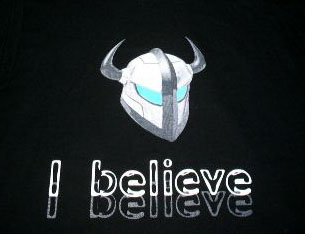The Top 7... Consoles that never were
Gizmondo 2? Super Nintendo CD? Find out why they vanished before their time

Created by: Phantom Entertainment (formerly Infinium Labs)
Intended for release: 2004
The hope: A pioneer in the field of downloadable gaming, the Phantom would simultaneously eliminate the need for physical discs and bring PC gaming to the masses. Essentially just a slick-looking PC itself, the Phantom would be built around a direct-download service that would enable users to quickly and easily play commercial games without the troublesome old concepts of "walking to the store" or "waiting for a delivery." Also, the games would cost exactly what they would at retail, or users could pay a subscription fee that would allow them to download a certain number of games per month.
The reality: Ragging on the aptly named Phantom at this point is like beating a dead horse with another dead horse thatwas beatento death with dead horses.But even so,no other console is as synonymous as the Phantom with vaporware, broken promises and outright lies.

Starting in 2002, the Phantom immediately aroused suspicion across the web when Infinium Labs announced it as a "revolutionary" new console, while saying precious little about what it would actually do. The ugly, computer-rendered mockup of the thing that came with the initial press release didn't help matters much; neither did the company's secrecy and relative obscurity. It wasn't long before insistent rumors started to circulate that the "console" was a hoax.
Aninvestigation into Infiniumby hardware site [H]ard|OCP reinforced these beliefs - the company was revealed to have no actual offices, and its founder's resume was sketchy at best. And when Infinium subsequentlythreatened to sue [H]ard|OCPfor reporting facts, it only made them look worse.

Two years down the road, however, the Phantom stunned audiences at E3 2004 by actually showing up. The company even acknowledged its shady reputation with T-shirts and banners saying, "I Believe," the former of which were handed out to anyone who stopped by the company's booth. Sure enough, real, working Phantom consoles were on display, along with the interesting "lapboard," which enabled users to use a keyboard and mouse without a desk.
Weekly digests, tales from the communities you love, and more
After that somewhat impressive showing, however, the Phantom was never really seen again. The console underwent numerous delays, each one pushing it back a few months, until finally it was announced that the console would be delayed indefinitely,until further funding had been secured. In August 2006, all references to the console were quietly removed from Phantom Entertainment's website.

Currently, the Phantom website advertises only two products: the lapboard, and an as-yet-unavailable direct-download service for games. For what it's worth, it looks like the Phantom will stay true to its name for the time being.
Why it never saw life: Assuming that Phantom Entertainment wasn't out to swindle its investors from the beginning, you can chalk this one up to money. Honest or not, it takes a lot of startup cash to launch a game console. And that money can't be easy to raise when the entire internet thinks you're running a massive scheme to defraud your investors. Or when you continually delay your product. Neither of those things really build confidence.
Hear more about this article inTalkRadar.
Jun 9, 2008



